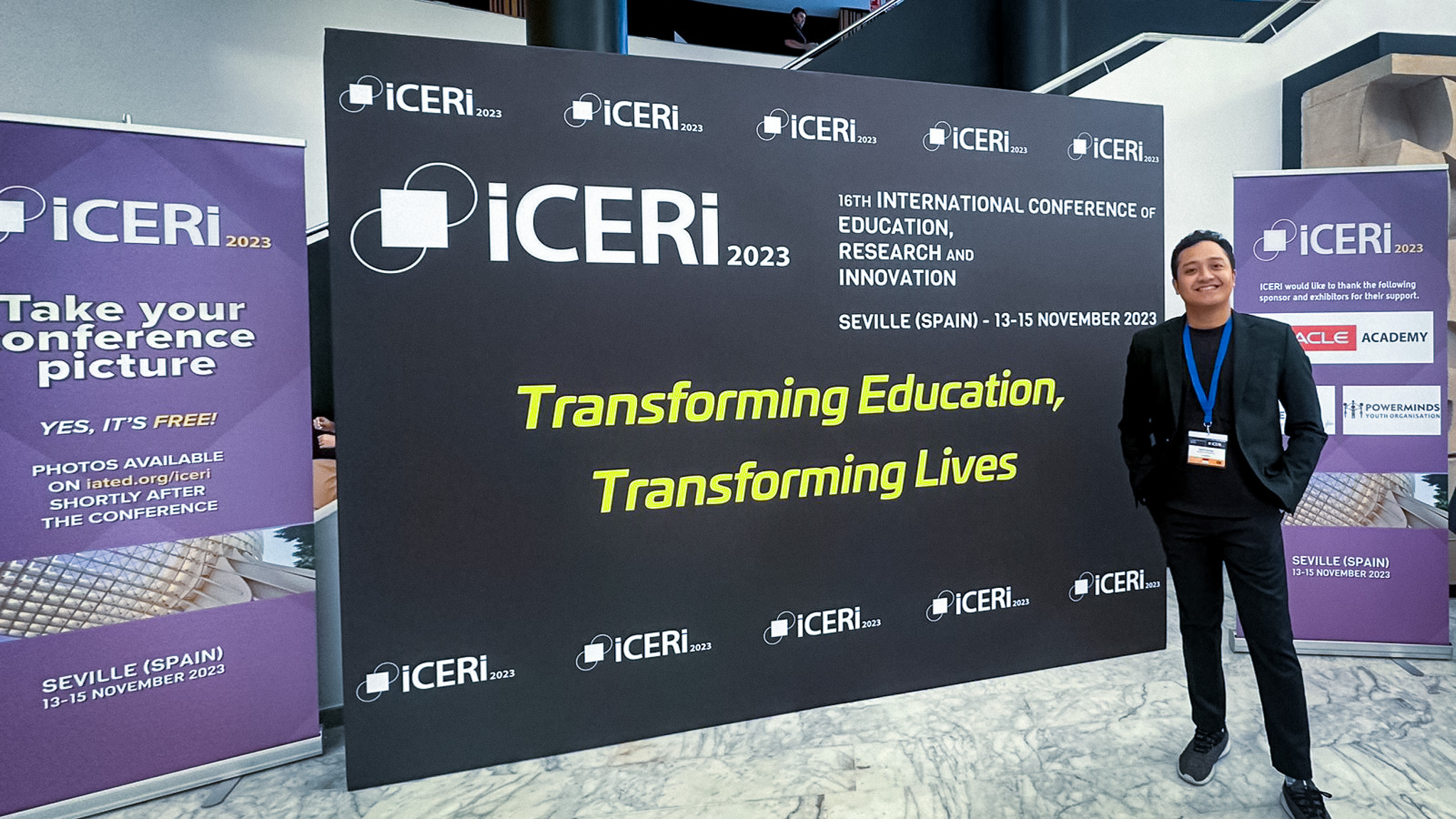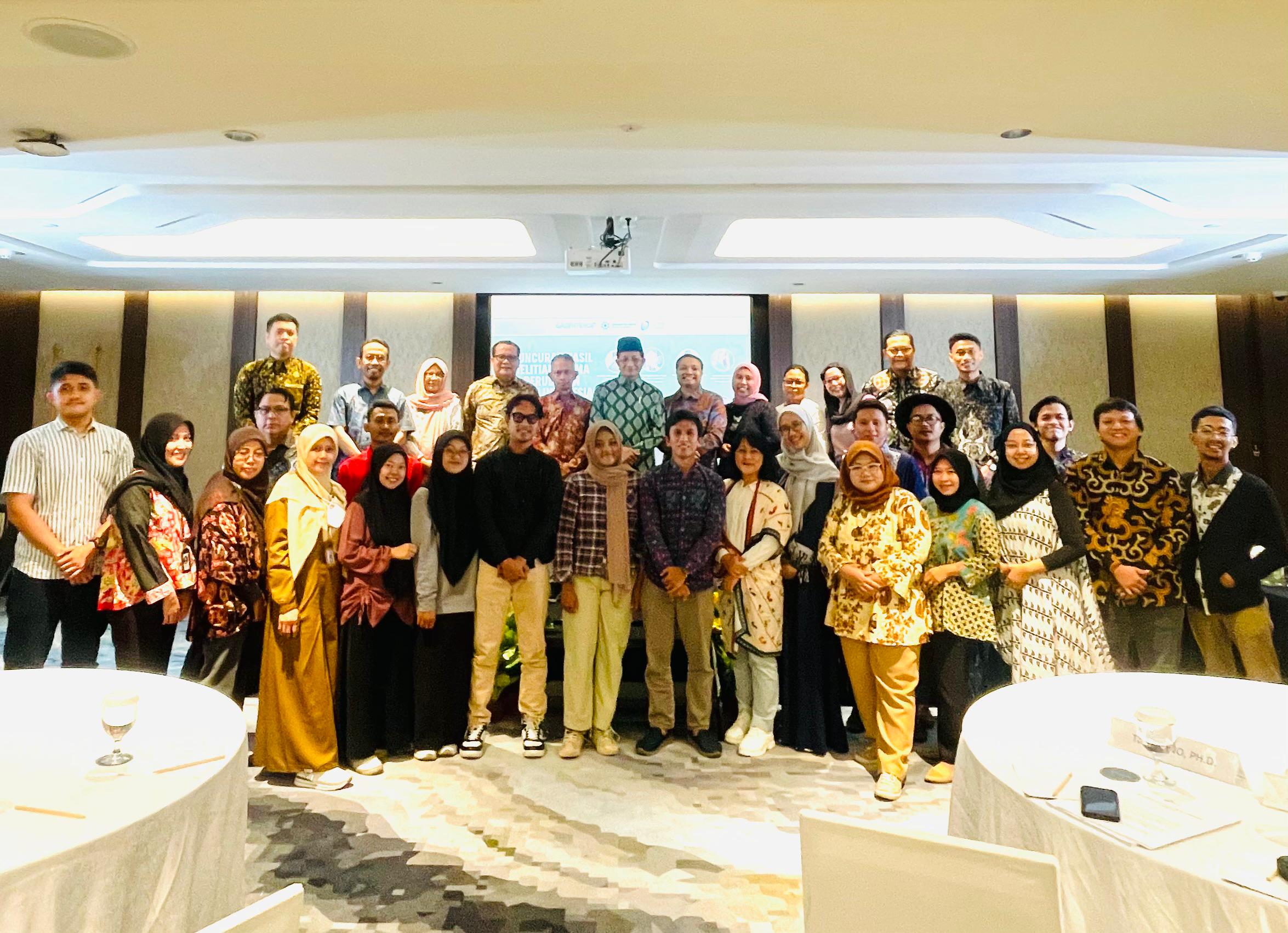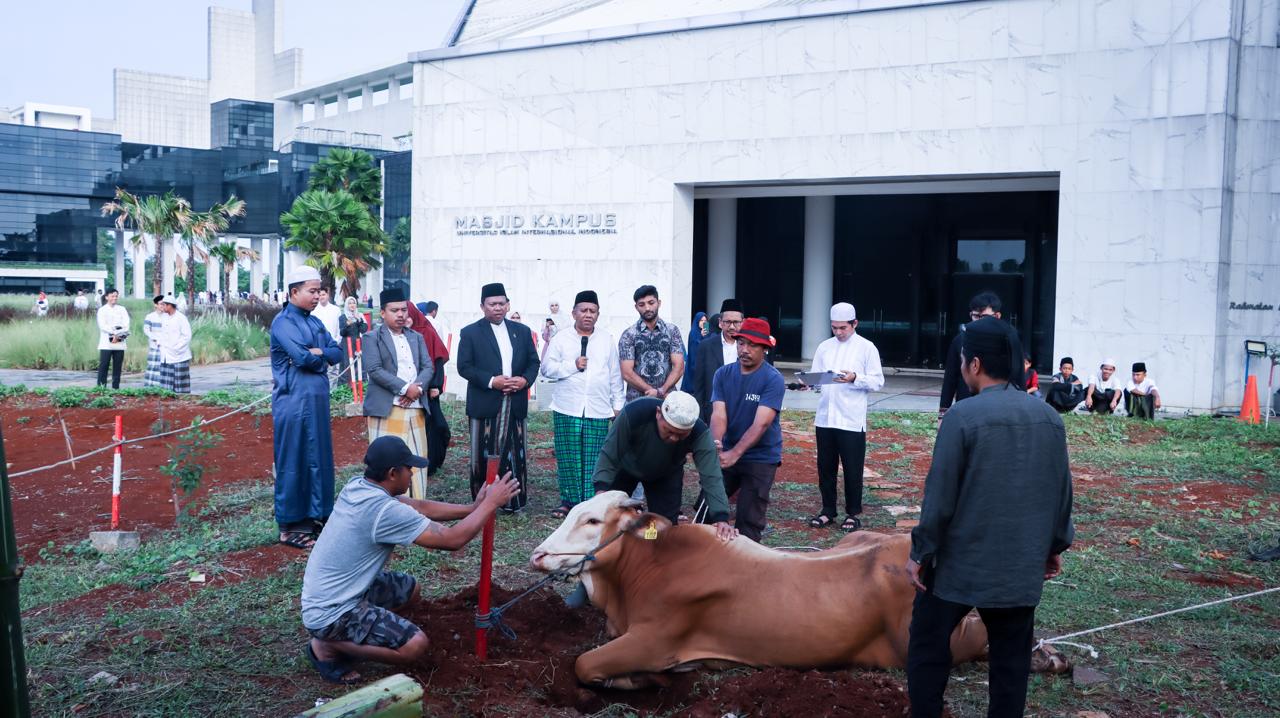UIII Student Discusses Muslim Environmentalism and Climate Change Education in Spain Conference
January 23, 2024Contributor: Kante Hamed | Editor: Supriyono

UIII, SEVILLE - Nadhif Mumtaz, a passionate PhD candidate from the Faculty of Education at the Universitas Islam Internasional Indonesia (UIII) recently presented his research at the 16th International Conference of Education, Research, and Innovation (ICERI) in Seville, Spain. His paper entitled "Muslim Environmentalism and Climate Change Education" captivated attention for its profound insights into education's pivotal role in addressing climate change in Muslim-majority societies.
Sharing his journey, Nadhif reflected that being part of ICERI was a remarkable experience, allowing him to share his research findings on a global platform. He explained that it was gratifying to witness the interest in the significance of environmental education in Muslim societies.
In his research, Nadhif examines the different approaches to climate change education focusing on an Islamic boarding school (pesantren) in Lombok and a secular school in South Tangerang, Banten. His study explores the influence of Islamic teachings on shaping environmental attitudes and policies in these varied educational contexts.
"In exploring Islamic teachings' integration with environmental values," Nadhif shared, "I found the 'Green Haramain' initiatives inspiring—a testament to how religious beliefs can drive environmental conservation."
‘Green Haramain’ is an initiative taken at the pesantren he studied in Lombok that symbolizes their dedication to ecological care, merging religious principles with practices such as eco-pesantren programs, maintaining clean environments, using waste-burning stoves, conserving vital land, and participating in tree planting.
“This initiative serves as a clear indicator of its commitment to environmental protection,” Nadhif highlighted.
Reflecting on his acceptance to present at ICERI, Nadhif expressed gratitude: "It was humbling to see the relevance of integrating environmental education into diverse settings. This recognition motivates me to further contribute to the global conversation on climate challenges within Muslim communities."
Nadhif's research signifies a critical stride in understanding education's profound impact on shaping attitudes toward climate change in Muslim-majority societies. It underscores the necessity for collaborative efforts between educational institutions, religious leaders, and environmentalists to promote sustainability.
His exemplary work serves as an inspiration within our academic community, showcasing the immense potential for research at our university to contribute meaningfully to global conversations addressing pressing societal issues.
- What Does Eid al-Fitr Mean for the UIII Academic Community?
- UIII PhD Scholar Ararat Kostanian Delivers Lecture at Armenia's Yerevan State University
- Swedish Ambassador to Indonesia Applauds UIII’s Vision, Explores Future Collaboration
- Depok Mayor Supports UIII as the Green Lung of Depok and Beyond
- Depok Mayor Pledges to Build Performance Hall at UIII
- New Parking Facility Launched, Part of UIII-Sentra Medika Hospital Partnership
- Yogyakarta’s UII Won 1st FisFastFest’s Clash of Campuses
- Vice Minister of Religious Affairs Praises UIII as a Global Hub for Islamic Education
- Hurray!! UIII Wins Football Championship
- Green Ramadan: UIII's Sustainable Bazaar Inspires Eco-Friendly Celebrations


